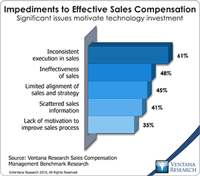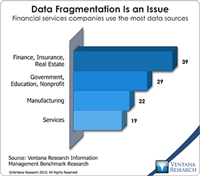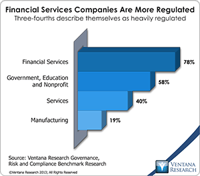Imagine how the third Monday in next January looks to leaders in the sales department. That’s the first day of the annual sales kickoff and the excitement level won’t get any higher. New products and services are in the works, lucrative customer contracts are up for renewal, alliance partners are in the house, and qualified opportunities are already flowing through your pipeline. The executive team is expecting big things from sales in the new year and has approved hiring additional people to...
Read More
Topics:
Sales,
Sales Performance,
Human Capital,
Human Capital Management,
Mobile Technology,
CRO,
Analytics,
Business Analytics,
Business Collaboration,
Business Performance,
Financial Performance,
Operational Intelligence
The proliferation of chief “something” officer (CxO) titles over the past decades recognizes that there’s value in having a single individual focused on a specific critical problem. A CxO position can be strategic or it can be the ultimate middle management role, with far more responsibilities than authority. Many of those handed such a title find that it’s the latter. This may be because the organization that created the title is unwilling to invest the necessary powers and portfolio of...
Read More
Topics:
GRC,
Office of Finance,
Chief Risk Officer,
CRO,
ERM,
OpenPages,
Operational Performance,
Business Analytics,
Business Collaboration,
Business Performance,
Cloud Computing,
Data Governance,
Financial Performance,
IBM,
compliance,
Data,
Risk,
Financial Services,
FPM
Integrated risk management (IRM) was a major theme at IBM’s recent Smarter Risk Management analyst summit in London. In the market context, IBM sees this topic as a means to differentiate its product and messaging from those of its competitors. IRM includes cloud-based offerings in operational risk analytics, IT risk analytics and financial crimes management designed for financial institutions and draws on component elements of software that IBM acquired over the past five years, notably from ...
Read More
Topics:
Supply Chain Performance,
GRC,
Office of Finance,
Chief Risk Officer,
CRO,
ERM,
OpenPages,
IT Performance,
Operational Performance,
Business Analytics,
Business Collaboration,
Business Performance,
Cloud Computing,
Customer & Contact Center,
Data Governance,
Governance, Risk & Compliance (GRC),
IBM,
Information Applications,
Information Management,
Operational Intelligence,
compliance,
Data,
Risk,
Financial Services,
FPM











